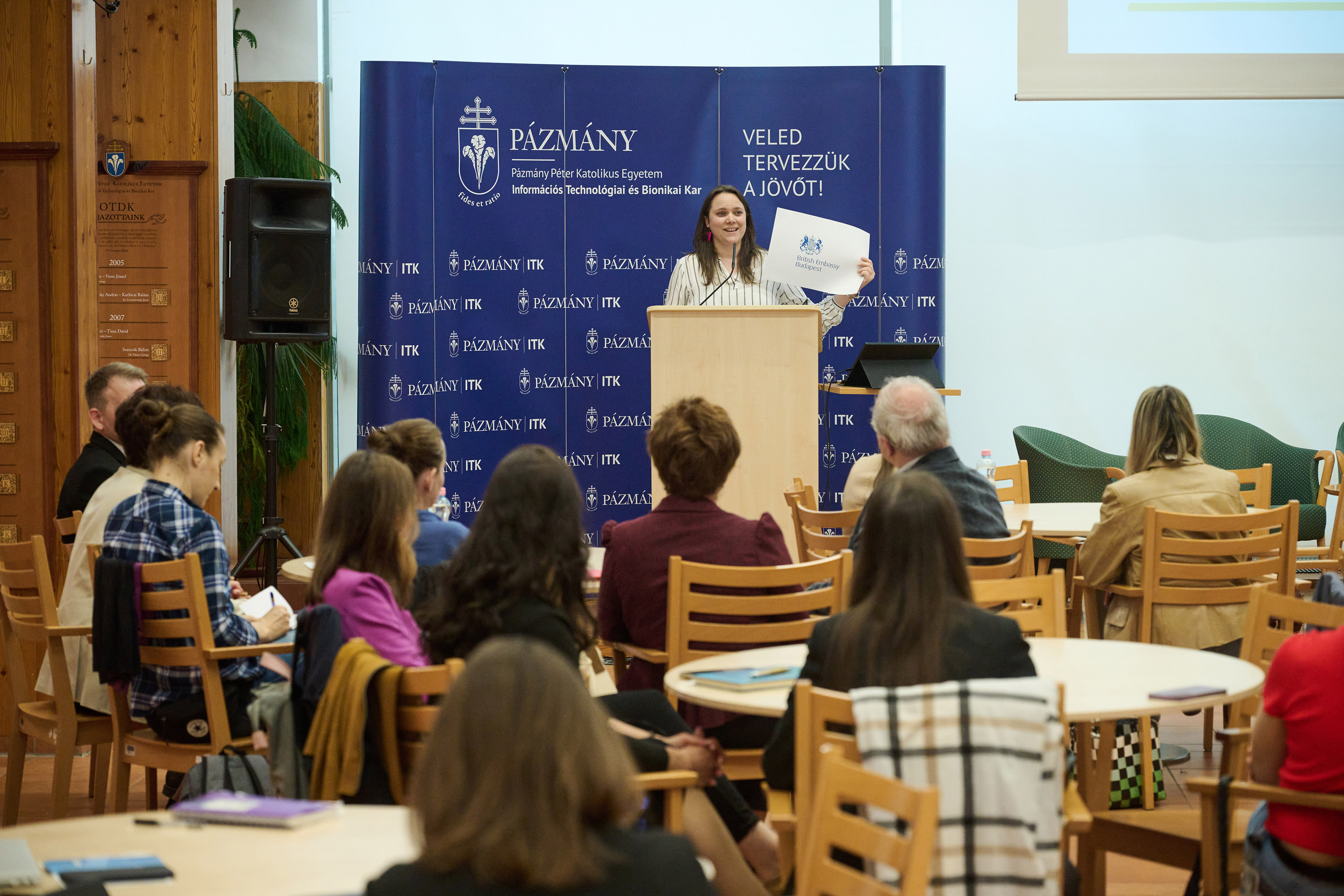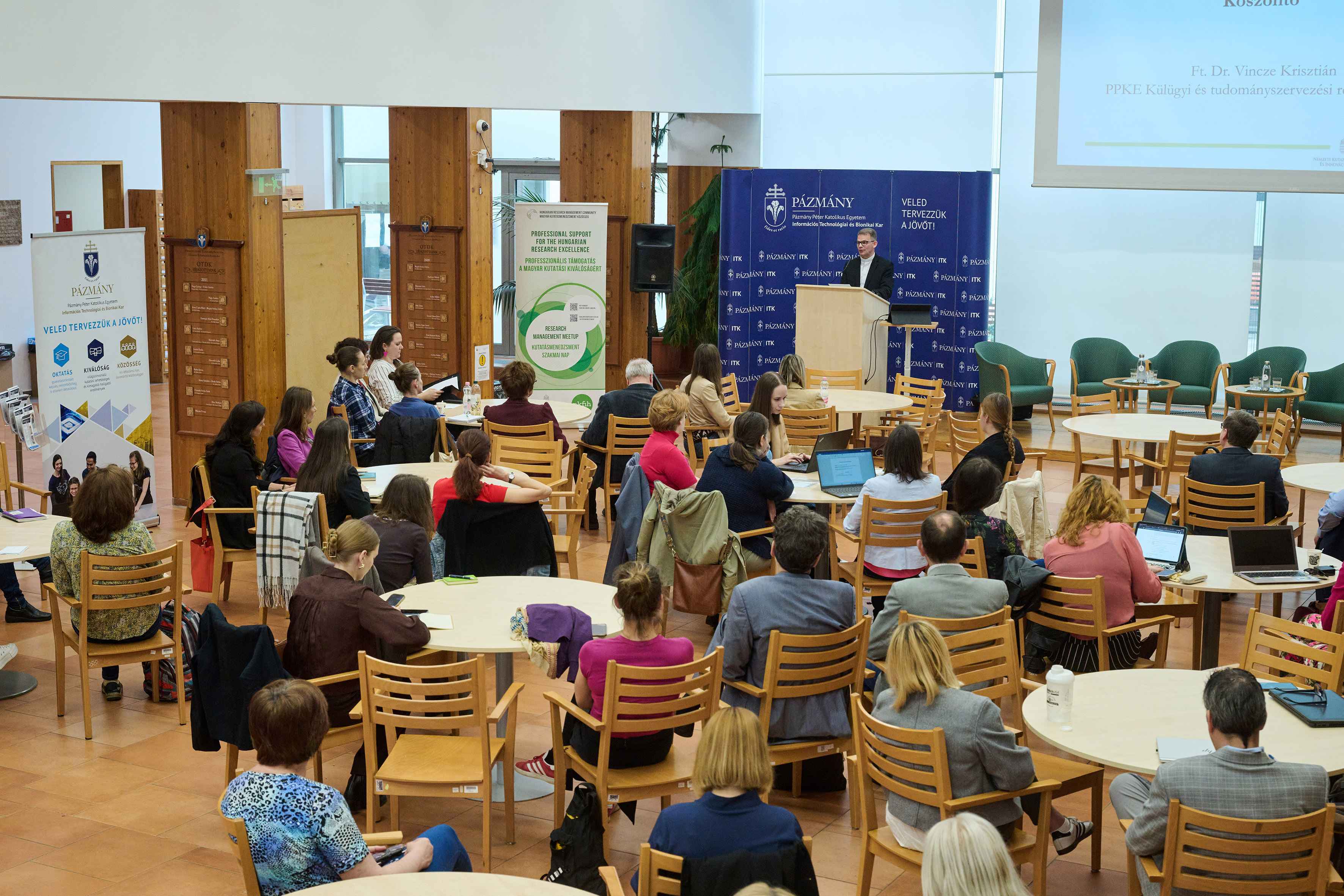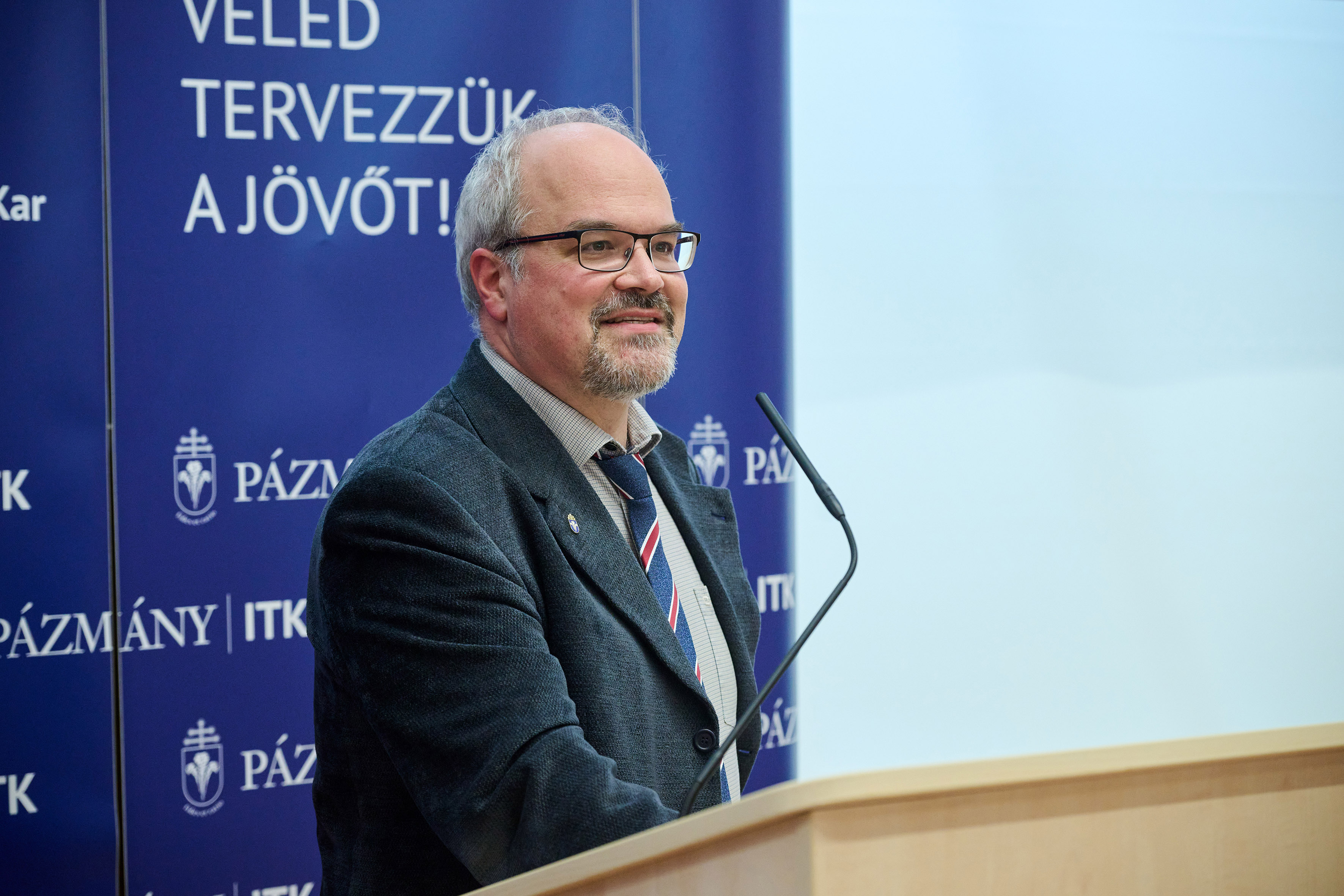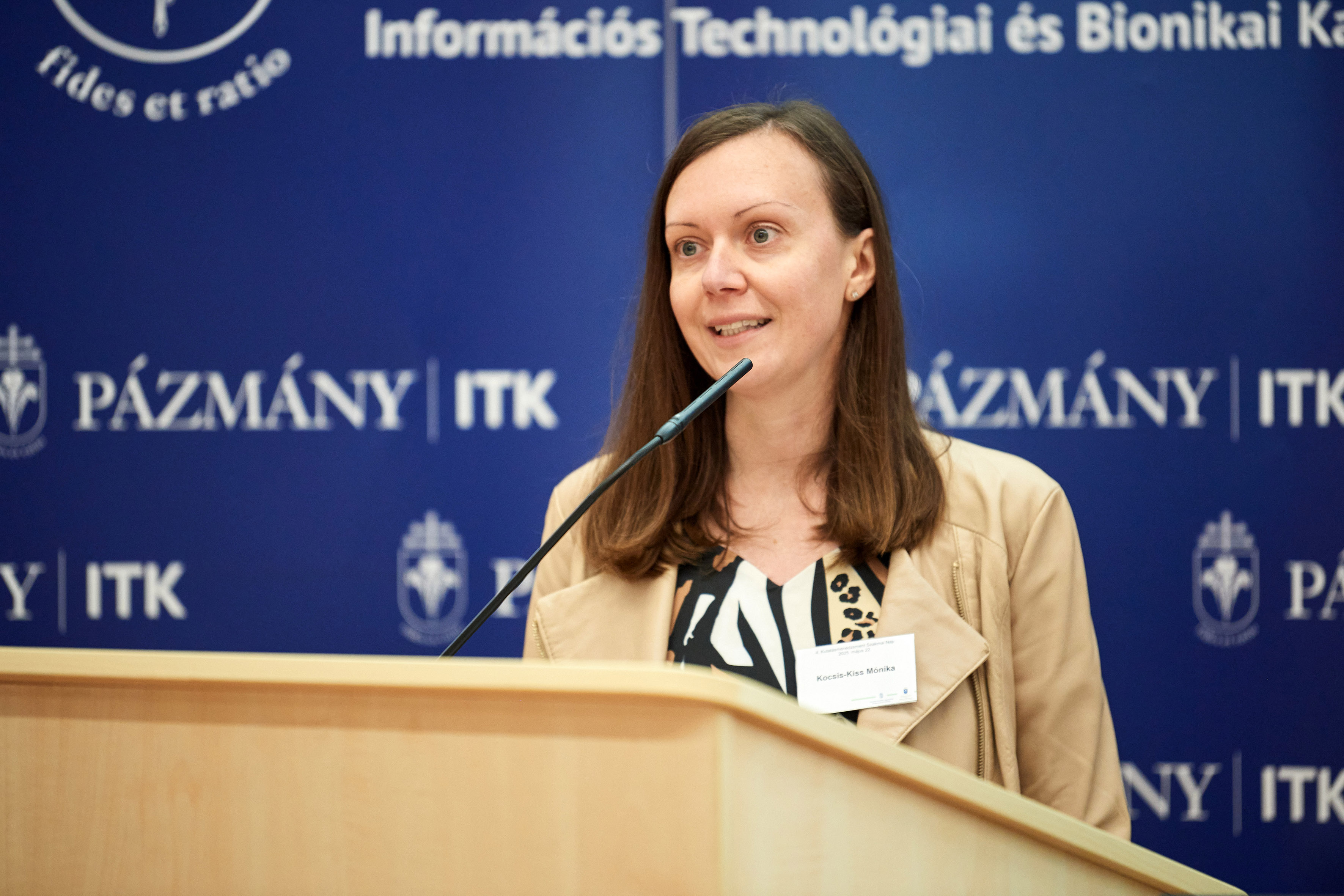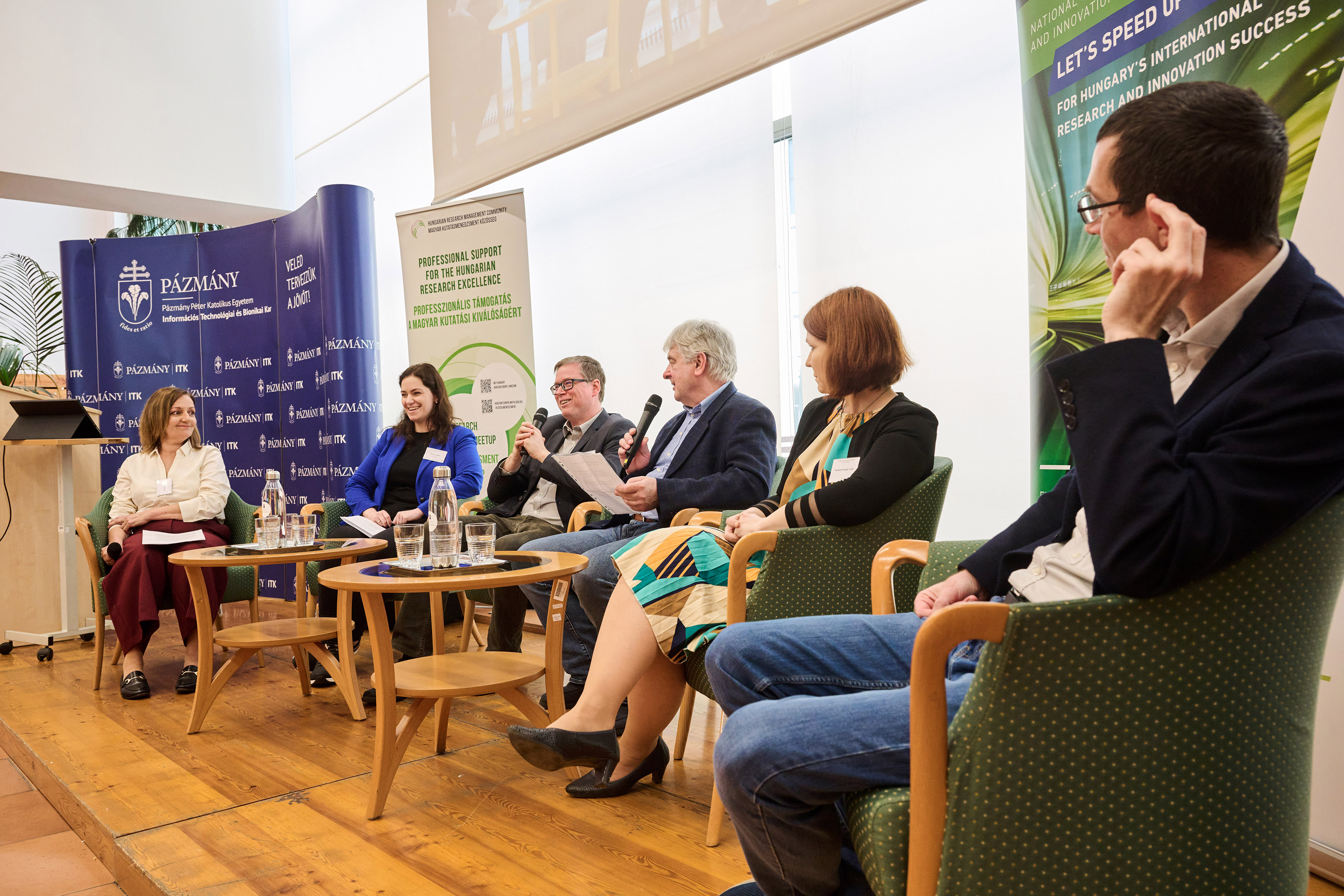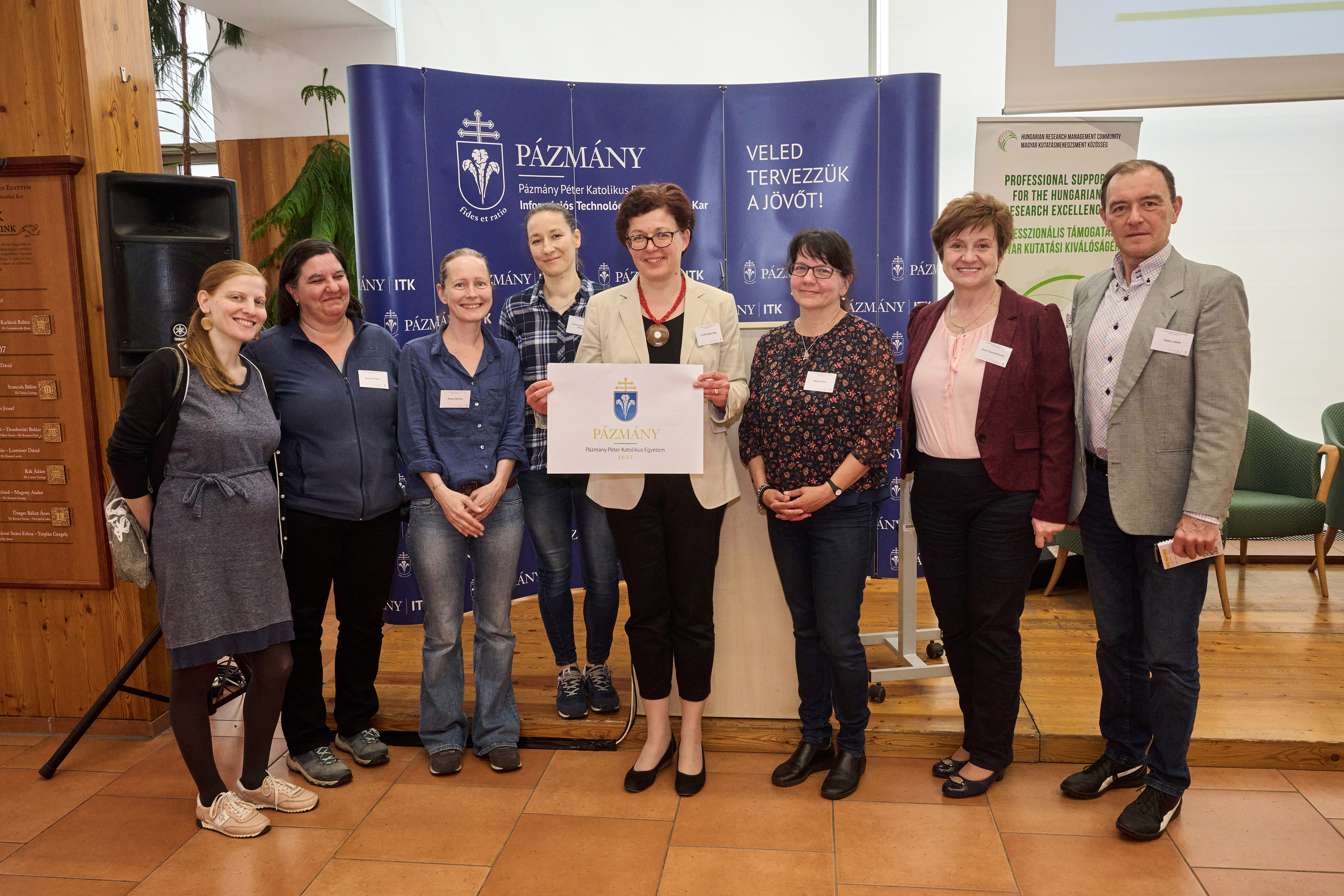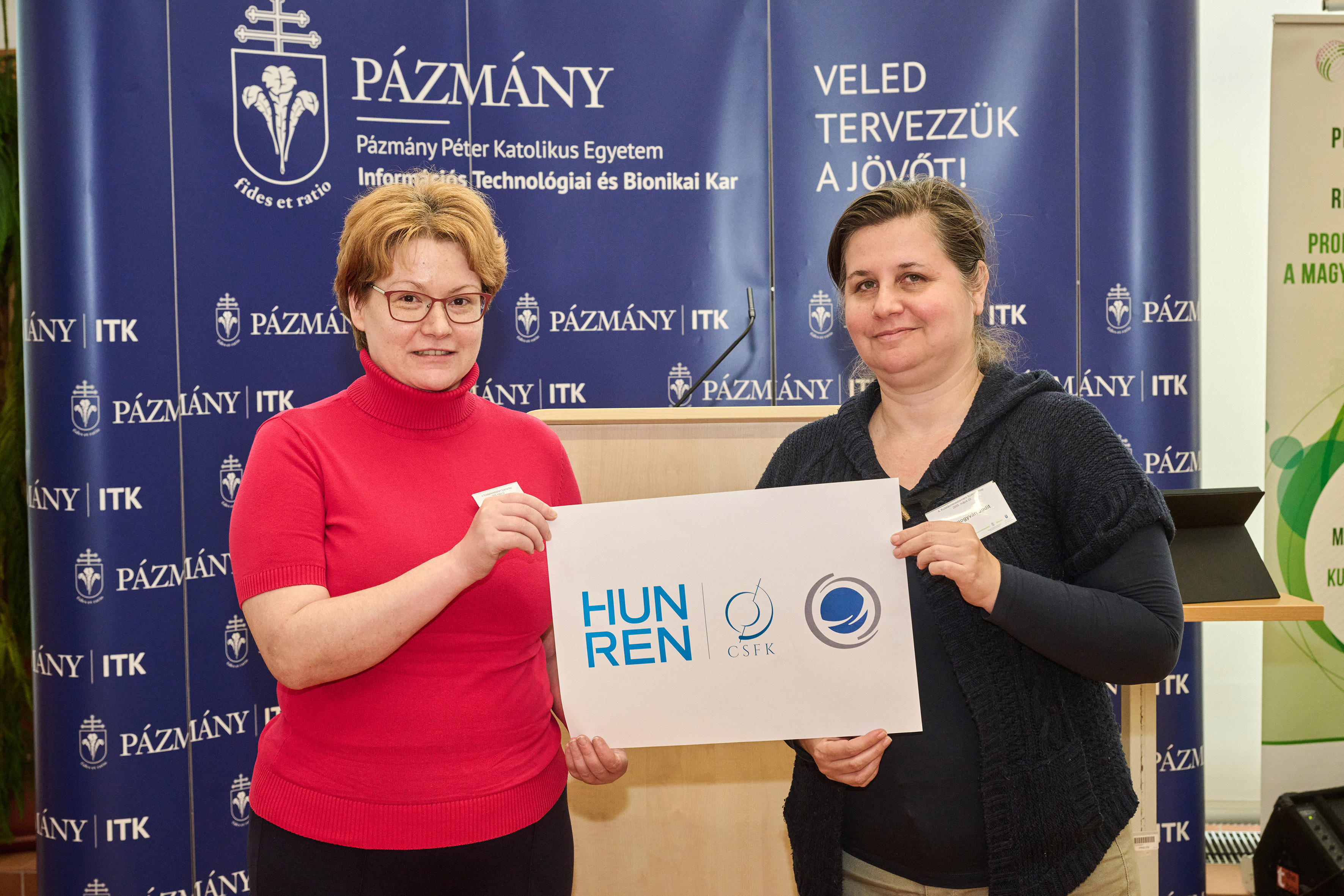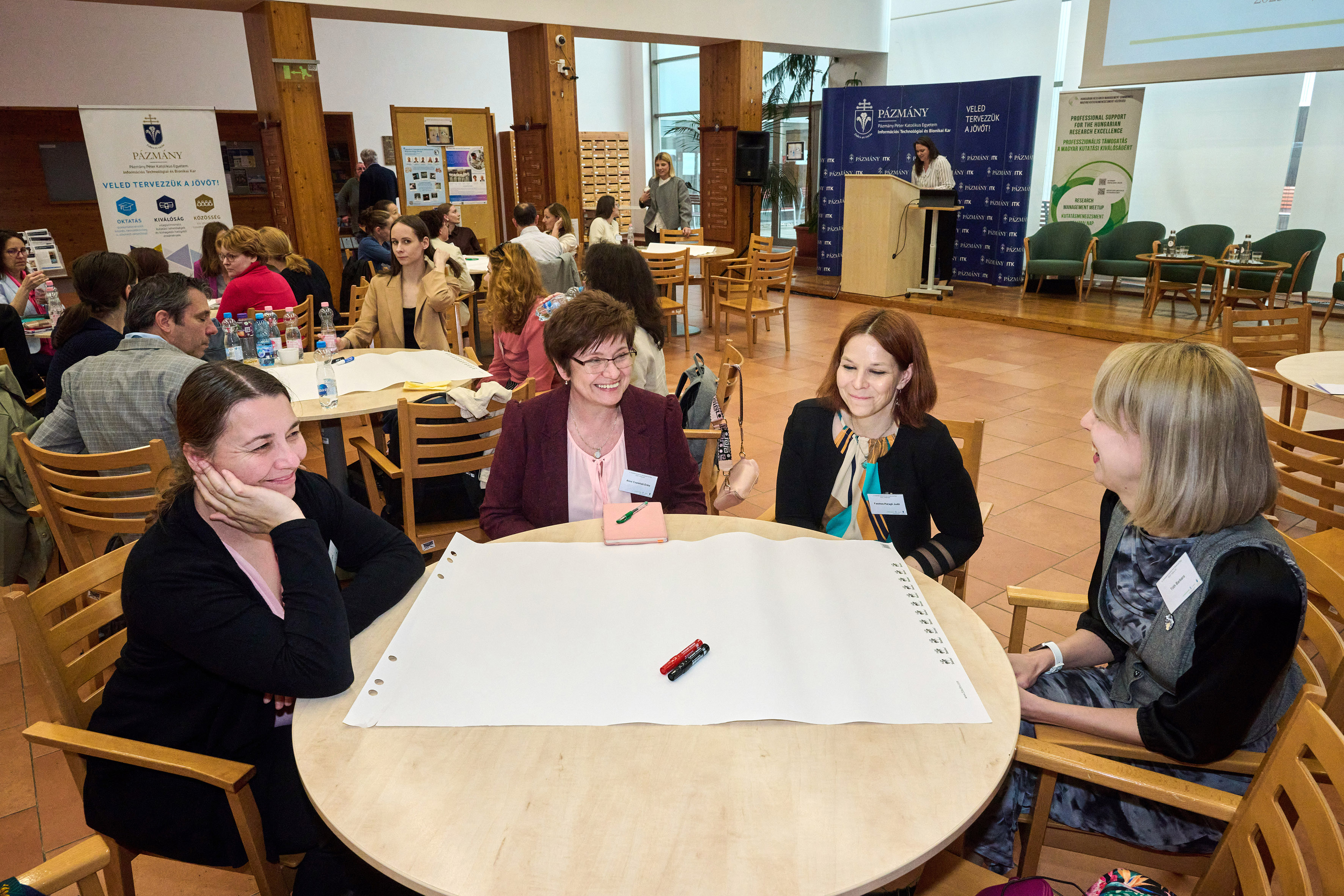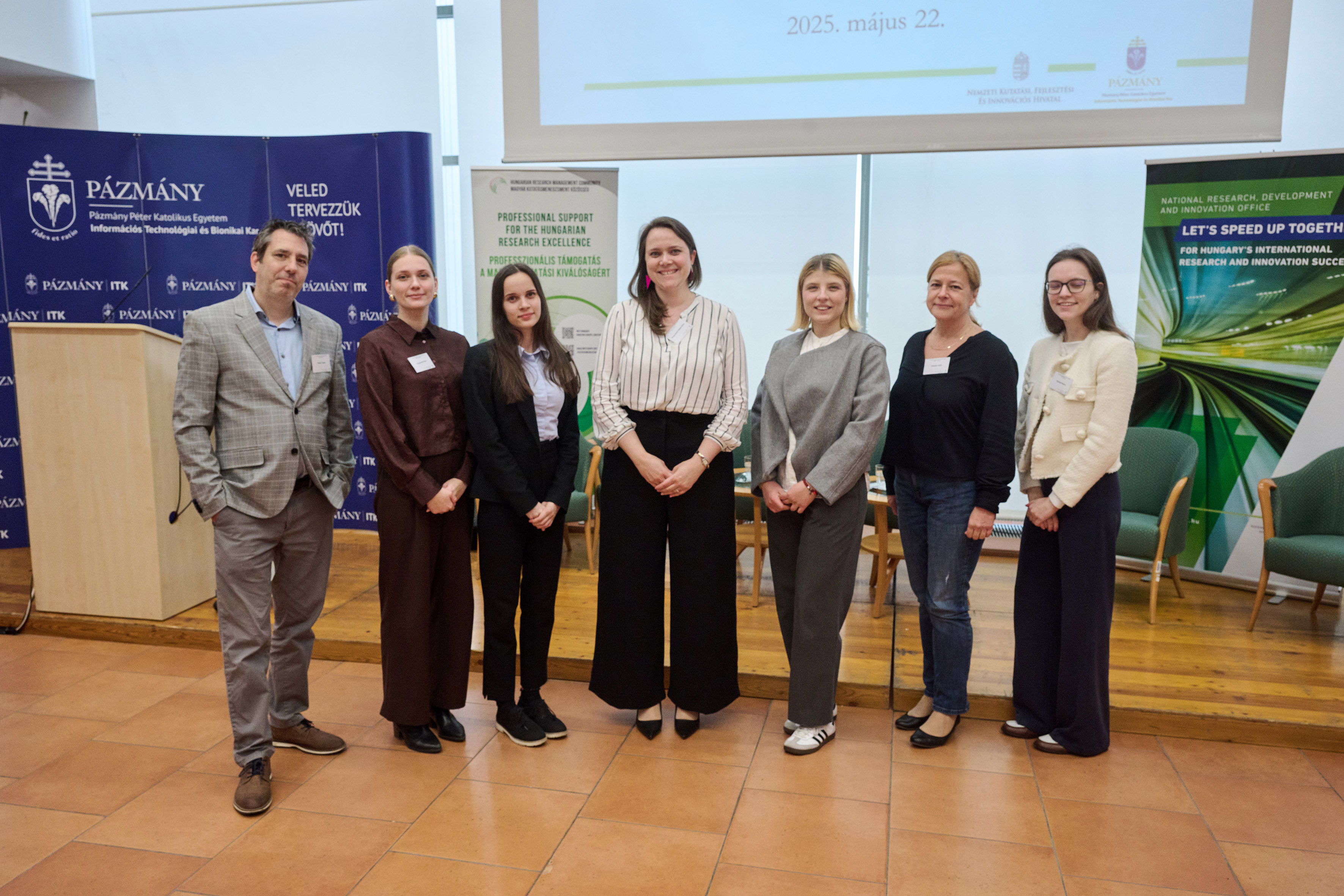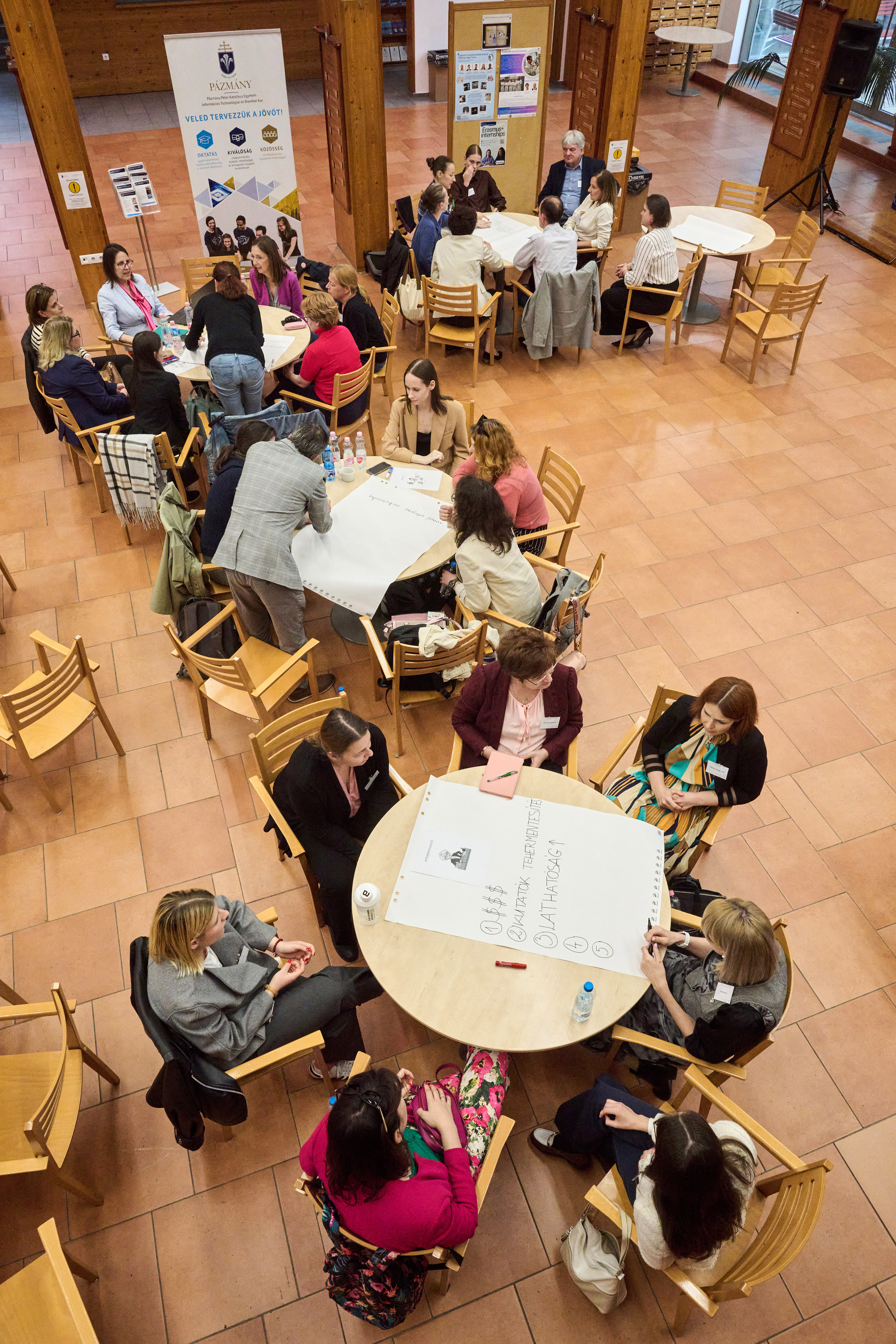The Department for International Cooperation of the National Research, Development and Innovation Office (NRDI Office) held the Research Management Professional Day for the fourth time, this time in cooperation with the Faculty of Information Technology and Bionics of Pázmány Péter Catholic University (PPKE). The event, held on 22 May 2025, once again provided an opportunity for professionals working in Hungarian research management to share knowledge, build networks and develop their professional skills.
Launched in 2023, the series aims to foster collaboration within the Hungarian research management community and to raise the profession’s visibility and recognition within the Hungarian and international RDI sphere.
“This is a forum where knowledge and experience meet.” emphasised Dr. Krisztián Vincze, Vice-Rector for International and Scientific Affairs at PPKE, in his opening address. Following this, Dean Dr. György Cserey presented the activities of the Faculty of Information Technology and Bionics, highlighting the institution’s developments in artificial intelligence, quantum technology, robotics, and hardware and software development, with a particular focus on human-centred innovation.
From the NRDI Office, Dóra Pivarcsiné Fekete, Head of the Horizon Europe Department of the Department for International Cooperation, gave participants a comprehensive overview of the current state of EU research policy, with particular emphasis on the future FP10 framework programme, recent developments in the European Research Area and Horizon Europe, and the available national funding opportunities. For the NRDI Office, the internationalisation of Hungarian research excellence is a priority area: in 2025 the Office is contributing HUF 19 billion to international value creation within the domestic RDI ecosystem. Dóra Pivarcsiné Fekete also presented the state of development of the 2025–2027 ERA Policy Agenda and a Research Management Action Plan, highlighting that, partly on the initiative of Hungary, increasing the visibility of the research management profession has also been included among the priorities.
During the popular “Open Mic” session, participants shared best practices with each other. The first Horizon Europe matchmaking event organised by Hungarian universities in Brussels was also presented, and Hungarian professionals who attended this year’s EARMA (European Association of Research Managers and Administrators) conference reported on their experiences. Veronika Tamás, a colleague from HUN-REN TK, noted: “The conference always reassures me that Hungarian research institutions are keeping up with the trends and applying many good practices.”
The afternoon panel discussion explored new directions in research assessment, with the help of colleagues from Hungarian member institutions of the Coalition for Advancing Research Assessment (CoARA). Participants reviewed the possibilities for developing research assessment practices, the impact of CoARA membership on Hungarian institutions, and future focus areas such as ethical publishing, talent management and supporting the career paths of young researchers.
As is now tradition, the day concluded with an interactive workshop. On this occasion, participants formulated messages on the importance of the research management profession for three different stakeholder groups: researchers, foreign partners and institutional leaders. The groups highlighted the profession’s multidimensional role, including effective time and cost management, identifying funding opportunities, relieving administrative burdens and facilitating the commercial exploitation of research results.
The 4th Research Management Professional Day once again confirmed that research management is not merely a support function, but a profession of strategic importance that is essential for elevating Hungarian research excellence to an international level.







